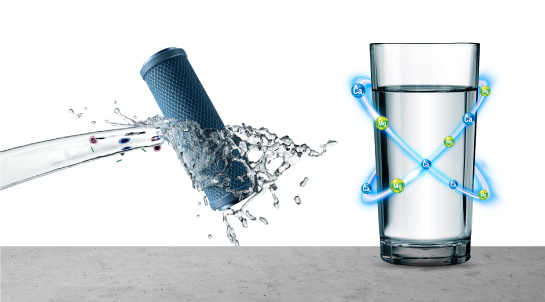:max_bytes(150000):strip_icc()/what-is-alkaline-water-and-is-it-healthy-8500d90297464b4b90238bbd18c5c3d7.jpg)
Maintaining hydration has several advantages. Heart health, increased vitality, and glowing skin are a few. Alkaline water is only one of several products that aim to harness the power of adequate hydration. The World Wide Web claims that drinking alkaline water will increase hydration, lessen blood acidity, promote healthy digestion, delay ageing, and prevent bone loss. Sounds like the water from Miracle? We asked two dietitians if they believed these claims to be true, false, or a combination of the two.
What Is Alkaline Water?
Alkaline water is made from hydrogen and oxygen—just like all waters. But it has a higher pH than other waters.It may also contain added minerals or ingredients, like baking soda, to make the pH higher.
How Is Alkaline Water Made?
There are two types of alkaline water—natural and artificial. "Some waters can be more alkaline if they are naturally occurring in an area that has rocks that are rich in certain minerals," Manaker says. Some brands of natural alkaline water may include calcium, potassium, magnesium and bicarbonate. These added minerals are meant to enrich alkalinity and taste.
Water may also be put through a process called electrolysis to raise the pH. The alkaline waters perched on store shelves, like brands Smartwater and Essentia, have usually been put through an ionizer—an appliance used to separate out more-acidic molecules.
There are also a variety of at-home methods to produce the same effect, such as an at-home ionizer, water filter, pH drops or even pantry ingredients, like baking soda.
What Are the Benefits of Alkaline Water?
Some studies show acidity encourages tumor growth, which raises the question: Could the high pH (or basic) potential of alkaline water help prevent cancer? Unfortunately, there's no medical evidence to support the idea that drinking alkaline water negates cancer growth.
Results from a clinical trial, published in Medical Gas Research, found that regular ingestion of alkaline water helped ease gastrointestinal symptoms (like stomachaches, heartburn, heavy stomach, lower abdominal pain, bloated stomach, etc.). While these results could be promising, alkaline water may also have an adverse effect for some people.
Are Any Risks Associated with Alkaline Water?
Although blood pH levels should remain around 7, that doesn't ring true for the stomach. Gastric pH should remain much lower, around a 2 or 3, as stomach acid is crucial to proper digestive function and is needed to ward off bad bacteria. Agitating these levels could cause nausea, or skin irritations but nothing too menacing. "Assuming a person has properly functioning kidneys, alkaline water appears to be safe to consume,"




